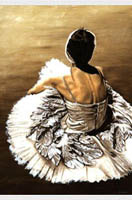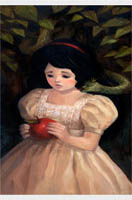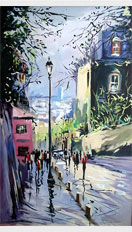Aleatory
Aleatory (or aleatoric) means "pertaining to luck", and derives from the Latin word alea, the rolling dice. Aleatoric art is that which exploits the principle of randomness. One of the most ambitious aleatory projects in poetry is Raymond Queneau's Cent Mille Milliards de Poèmes (Hundred Thousand Billion Poems).
John Cage was a very important name in aleatoric music. At the premiere of his most famous work, 4' 33", the famous virtuoso pianist David Tudor sat at the piano for four minutes and thirty-three seconds and the reactions of the audience (whispering, coughs, laughs ...) formed the music.






In film-making, there are several avant-garde examples; Fred Camper's SN (1984; first screening 2002) uses coin-flipping to determine which three of 18 possible reels to screen and what order they should go in (4896 permutations). Barry Salt, now better known as a film scholar, is known to have made a film six reels long which takes the word aleatory quite literally by including a customized die for the projectionist to roll to determine the reel order (720 permutations).







